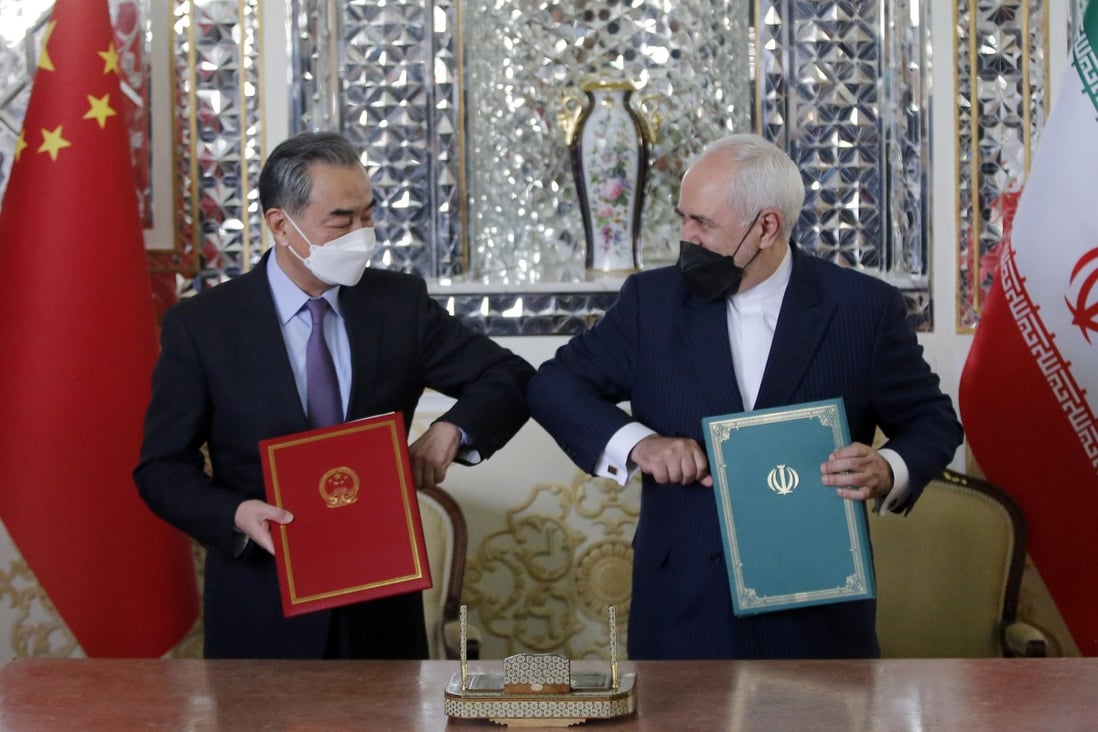Another article for South China Morning Post from a month or so back looking at how China’s role on the world stage is changing and its impact. A topic for lots of research and thinking in the future.
China’s Saudi-Iran deal is a clear victory in its global push to be a force for peace
- It remains to be seen how much China will enforce the agreement, given its dislike of confrontation, but that matters less than others engaging with Beijing.
- The world order is shifting and the West needs to find a better way to answer the offer Beijing is putting on the table than simply dismissing it.

Beijing deserves credit for seizing the opportunity to support Saudi-Iranian rapprochement. While it is premature to say China has displaced the United States in the Middle East through this deal, coming amid reports that President Xi Jinping is to meet both Ukrainian President Volodymyr Zelensky and Russian President Vladimir Putin, it does highlight the appeal of Beijing’s approach to foreign policy to a wider audience than is sometimes appreciated in the US or Europe.
As far as can be understood, China came into the process for the Saudi-Iranian deal relatively late. Iraq and Oman also played an important brokering role, one that both Tehran and Riyadh actively sought out as they attempted to tone down their tensions. Even so, it is clear that Beijing played an important role in clearing the final hurdles to the agreement and reportedly offered some critical backstops and guarantees.
It remains to be seen how much Beijing will act as an enforcer and whether it will step in to chide either side if they fail to live up to their responsibilities within this framework. Similarly, we will have to wait and see what, if any, tangible deliverables China can obtain in its attempts to mediate between Putin and Zelensky.
But in many ways, from a Chinese perspective, these details are less significant at this point. This is part of a wider push since the end of China’s zero-Covid policy, one which demonstrates an alternative international order that Beijing can offer. Xi’s travel itinerary since last September has included attending a Shanghai Cooperation Organisation summit in Uzbekistan, the Group of 20 summit in Jakarta, the Apec forum in Bangkok and the China-Gulf Cooperation Council Summit in Riyadh.
These are all platforms where the West has less of a presence and where China gets a warmer reception. They are also replete with powers that appreciate Beijing’s less-judgmental approach to international affairs and how they behave at home. Some also see China as a rich potential investor and important economic partner, which blunts their desire to take a confrontational approach.
At the same time, Chinese diplomacy seeks to push a narrative of positive engagement on the world stage. The publication of the Global Security Initiative white paper in English was an illustration of what a Chinese-led security order might look like.
While China’s peace proposals for Ukraine have received a mixed reaction in the West, they are a way for Beijing to highlight that, unlike other members of the UN Security Council, it is offering peaceful options to end the war in Ukraine. The fact that Xi is now stepping in to engage suggests that Beijing thinks it already has something agreed that will be presented. The clear narrative will be China as peacemaker.
One can be sceptical about how long such moves by Beijing on the big strategic questions of our time might last. A key problem when trying to mediate between two sides is that, when they breach agreements, they need to be held to account or told to do things they do not want to do or hear. These are difficult conversations that Beijing is not usually eager to hold. Peace agreements that need to be enforced can lead to tensions.
In many ways, though, this does not matter. The fact that all these powers are willing and eager to engage with Beijing and use China as an interlocutor is a reflection of China’s growing soft power on the world stage.
It is not necessarily that China is adored or that any of these powers really think this is the end of their problems. It is more that China is stepping in and offering something different. Given the intractable nature of the problems, this is positive messaging that is welcome in a world that appears to be increasingly moving towards a bipolar geopolitical conflict.
It is also further evidence, if any was needed, that the West will find it difficult to paint the struggle it sees itself locked into against China, Russia and Iran through the current binary lens. The reality is that other countries have agency and, as we are increasingly seeing, China does too.
The world order might not have been transformed, but it is shifting. The West needs to find a better way to answer the offer Beijing is putting on the table than simply dismissing it. The deep scepticism many Chinese efforts receive is understandable, but it misses the reality that this is not how the rest of the world always sees things.
Elsewhere, people will look at China’s proposals and its attempts at mediation as evidence of Beijing offering something new which, while not perfect, is at least not simply stoking the flames of conflict. Whether this narrative will hold remains to be seen, but the immediate narrative victory has clearly been won.
Raffaello Pantucci is a senior associate fellow at the Royal United Services Institute (RUSI) in London and a senior fellow at the S. Rajaratnam School of International Studies (RSIS) in Singapore

